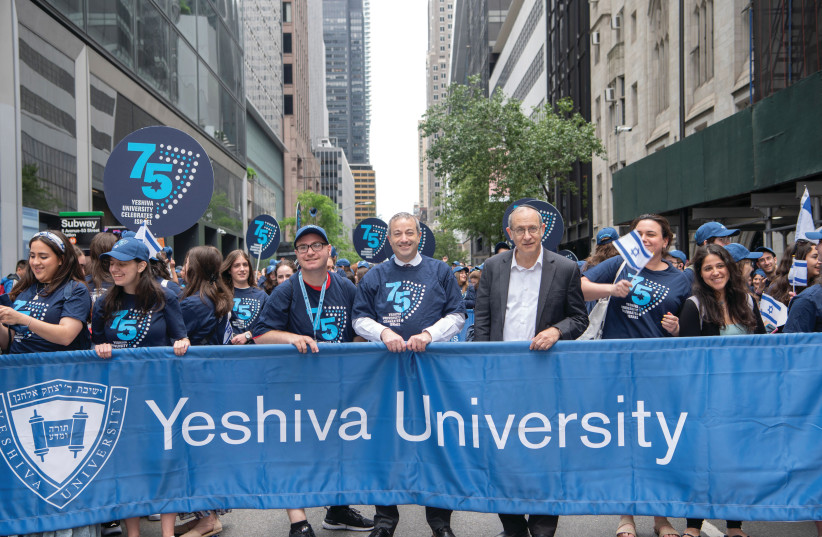Shocked by the growing antisemitism among students and academic leaders in many American universities and colleges, the president of Yeshiva University (YU) in New York and a congresswoman from North Carolina urge students who have suffered physical or verbal intimidation based on their religion to immediately file reports with campus police and report incidents to the House Committee on Education and the Workforce.
Congresswoman Virginia Foxx, who is the chairwoman of the committee, declared in the meeting that “we want to root out antisemitism on American campuses."
YU president Dr. Rabbi Ari Berman said: “I want to thank the congresswoman for her moral clarity and important efforts to combat antisemitism on college campuses.” At the meeting, Rep. Foxx and Berman discussed the importance of students coming forward and reporting incidents of physical or verbal attacks because of their beliefs.
Students must report antisemitic incidents

“If any Jewish student or faculty member feels physically threatened by either the words or deeds of professors, campus administrators, or students, they should go to their campus police and report it as a hate crime,” Berman said.
“This certainly includes calls for Jewish genocide. Our institutions of higher education are entrusted with the mental and physical well-being of students, and those who do not feel safe cannot succeed academically.
“That is why I urge organizations who oversee national collegiate rankings to take safety measures into account in their calculations,” he added. “The most effective way to keep students safe is to align a university’s priority to protect its students with its institutional need for top-tier national rankings.”
YU is the convenor of a historic coalition of more than 100 colleges and universities, United Against Terrorism, which includes public and private, faith-based, and historically Black colleges and universities and was the first of its kind to put a spotlight on campuses in the aftermath of the satanic incursion into Israel by Hamas terrorists on October 7.
“There is unparalleled strength in presidents joining together to lay the moral groundwork on which all civil dialogue is naturally based and the values that higher education represents, Berman and Foxx agreed. “Doing so protects our campus communities from violence and hate.”
Foxx, 80, is an educator, businesswoman, and Republican politician, who has been representing North Carolina’s 5th district since 2005. Her district includes much of the northwestern portion of the state, including most of the city of Winston-Salem.
She was born in the Bronx in New York City but was raised in a rural area of Avery County, North Carolina, where she grew up in a poor family and first lived in a home with running water and electricity only at age 14. While attending high school, she worked as a school janitor and was the first in her family to graduate from high school.
Eventually, she graduated from the University of North Carolina at Chapel Hill with a bachelor’s degree in 1968, followed by a master of arts degree in college teaching and a doctorate in education.
Berman, 53, is a modern Orthodox, Zionist rabbi and the fifth YU president. Raised in New York City’s borough of Queens, he graduated from the Marsha Stern Talmudical Academy (YU High School for Boys) in Manhattan and studied in Yeshivat Har Etzion in Israel’s Alon Shvut before earning a BA degree from Yeshiva College, rabbinical ordination from YU’s Rabbi Isaac Elchanan Theological Seminary, and a master’s degree in medieval Jewish philosophy from YU’s Bernard Revel Graduate School.
